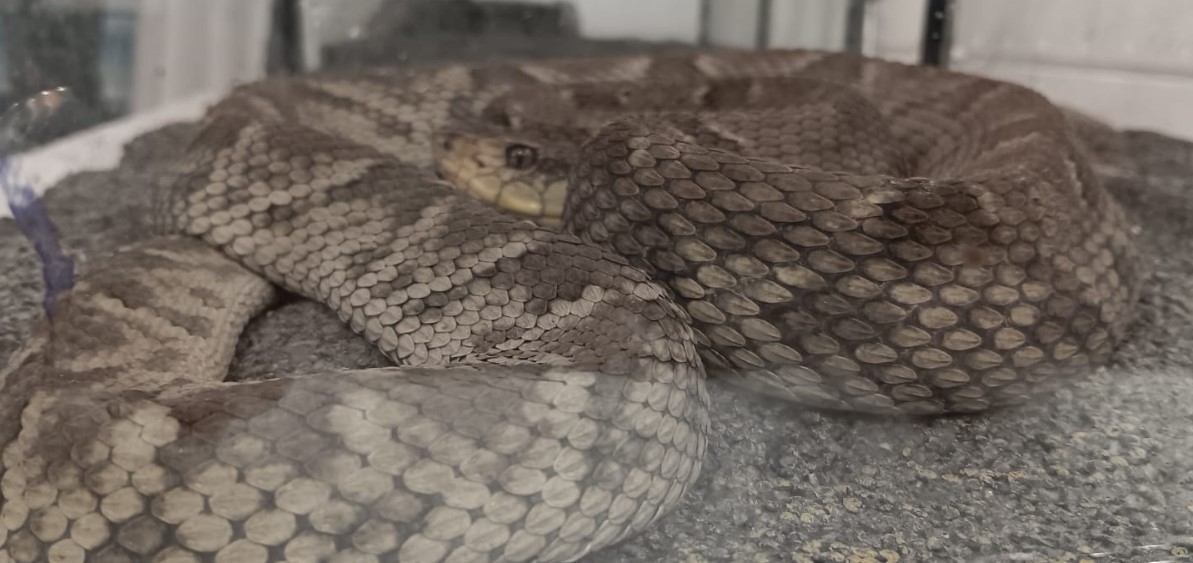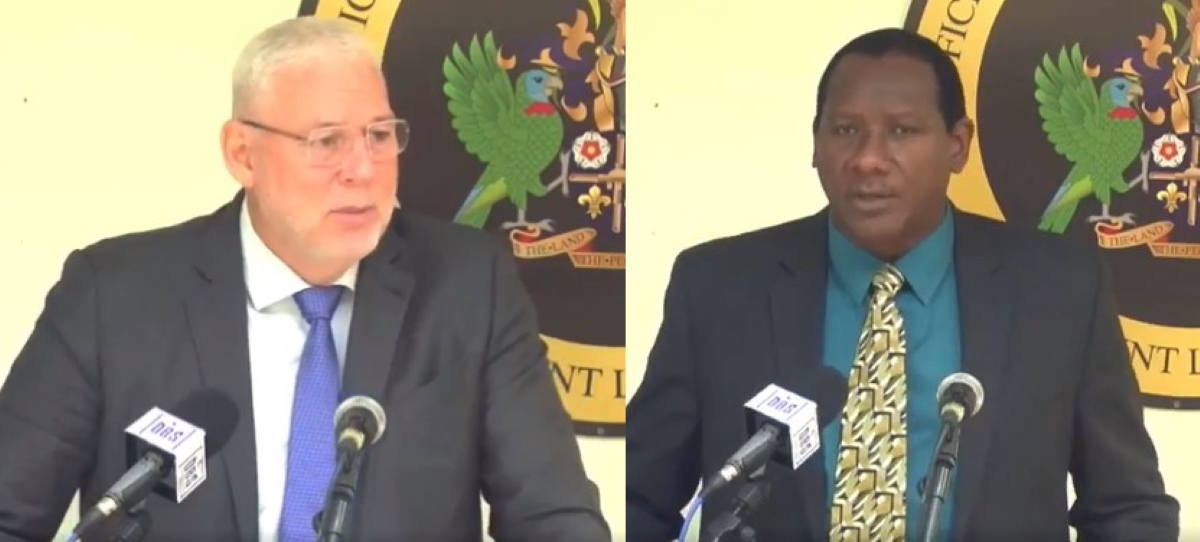

On Friday, The Harbor Club in Saint Lucia was the setting for the 3rd International Symposium on Snakebite Envenoming and One Health, an event aimed at addressing the dual challenge of managing snakebite cases and preserving biodiversity.
The event was organised by the Ministry of Health, Wellness, and Elderly Affairs, bringing together experts and stakeholders from across the region to tackle the critical issue under the theme, “New Approaches to Combat Snakebite Envenoming: Integrating One Health Perspectives.”

In her keynote address, Dr. Alisha Eugene-Ford, Director of Universal Health Coverage, underscored the significance of the event and its relevance to public health initiatives on the island. “The management of snakebites is another service within the essential package of health services under Universal Health Coverage. This is a service that is marked to be officially launched during the financial year 2024-2025,” Dr. Eugene-Ford announced.
The Fer De Lance, a venomous snake endemic to Saint Luce, was a focal point of the discussions. Dr. Eugene-Ford highlighted the delicate balance required to address the risk posed by the species while preserving its existence. “One might ask, why protect such a poisonous snake? The Saint Luce is an endemic species to Saint Lucia, and it’s at a high risk of extinction. There is ongoing decline in the species population, and the infrequent but dangerous interactions between human beings and the snakes highlight the need for a plan to protect human lives and preserve this endemic species,” she stated.
Between November 2007 and March 2018, Saint Lucia recorded 104 snakebite cases, resulting in three deaths.
Globally, snakebites are responsible for over 100,000 deaths and 400,000 permanent disabilities annually, according to World Health Organization (WHO) estimates.
The Saint symposium aims to provide insights into effective prevention and management strategies while exploring the broader ecological importance of snakes.
“This symposium will provide us with the opportunity to discuss and educate on all what is needed to strike this needed balance between the protection of human lives and snake preservation,” Dr. Eugene-Ford explained.
The packed agenda includes sessions for:
- Farmers on preventing snakebites.
- Emergency medical teams on field care.
- Clinicians on advanced management.
Another key discussion point she mentioned was the use of snake venom in medical research, the availability of antivenom, and establishing a snakebite registry to improve data collection and response efforts.
Dr. Eugene-Ford also praised the collaboration between the Ministry of Health and the University Hospital of Martinique and the participation of snakebite specialists and stakeholders from across the Caribbean. “Your support and commitment are invaluable,” she remarked.
The symposium marks an important step forward for Saint Lucia in managing the dual challenges of snakebite envenoming and conservation, reinforcing the island’s commitment to public health and environmental sustainability.





